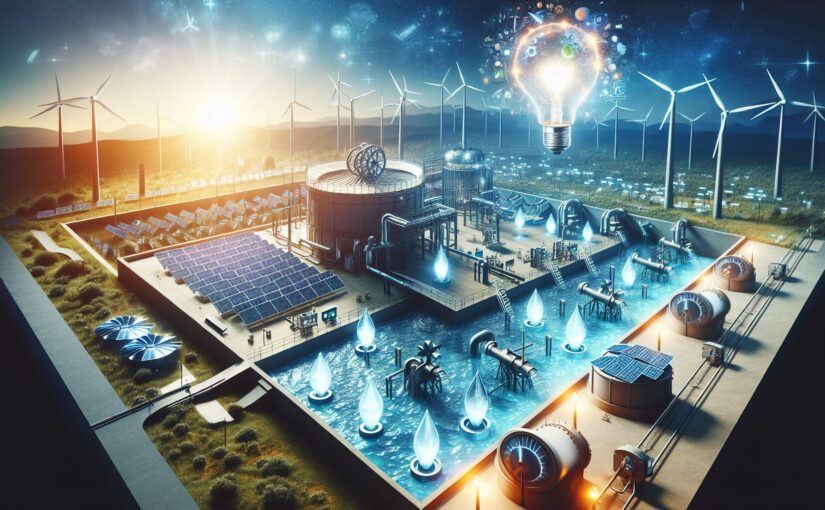Today, the world is consumed by discussions on renewable energy and how to leverage it to combat the impending energy crisis and the broader existential problem of climate change. What if I told you the key to unlock this lies in something as simple yet complex as wastewater? Yes, you heard it right, wastewater can be a source of renewable energy.
How is Wastewater a Source?
Wastewater contains organic substances, primarily from human and industrial waste, which can be broken down into simpler elements that create energy. The process involves using microorganisms such as bacteria to break down these organic substances. During this process, the bacteria produce an excess of electrons. It is these electrons that hold the power to produce energy.
One effective and innovative method to capture this is through a process known as Anaerobic Digestion, which is used to produce biogas. Biogas is a renewable energy source that is produced from the degradation of organic waste in an environment where there is no air. This gas can be used for heating, electricity generation, and many more applications [^1^].
The other technique features Microbial Fuel Cells (MFCs), which is a bio-electrochemical system that drives a current by using bacteria and mimicking bacterial interactions found in nature. MFCs can be used to turn organic material in wastewater into electrical energy [^2^].
Challenges and Opportunities
While the idea sounds promising, its implementation does come with a few challenges. The primary challenge is the cost- the setup and maintenance costs of biogas plants and MFCs are currently high, limiting their widespread use.
However, given that the raw material- wastewater- is readily available and in copious amounts, chances are high this could become a prime energy source in future. Another advantage is that in addition to generating power, this process also serves the dual purpose of treating wastewater, which is critical given the scarcity of water resources on our planet.
Final Word
The potential for renewable energy generation from wastewater is immense and largely overlooked. As the technology evolves, the efficient capture and utilization of this energy could represent a significant and sustainable contribution to our overall energy mix.
In a world where sustainability and renewable resources are at the forefront of concerns, it makes sense to begin putting our waste – and that of bacteria to good use. Solutions are often found in the least expected places. The key, however, lies in investment, research, and developing effective, efficient, and economical methods of harnessing this power.
[^1^]: Anaerobic Digestion: Biogas Production and Odor Reduction
[^2^]: Microbial fuel cells: From Fundamentals to applications. A review
P.S. If you enjoyed this article and you’re interested in more cutting-edge insights into sustainable energy, you might want to check out our articles on “Power density in wastewater MFCs” and “Microbial fuel cells for wastewater treatment”.
